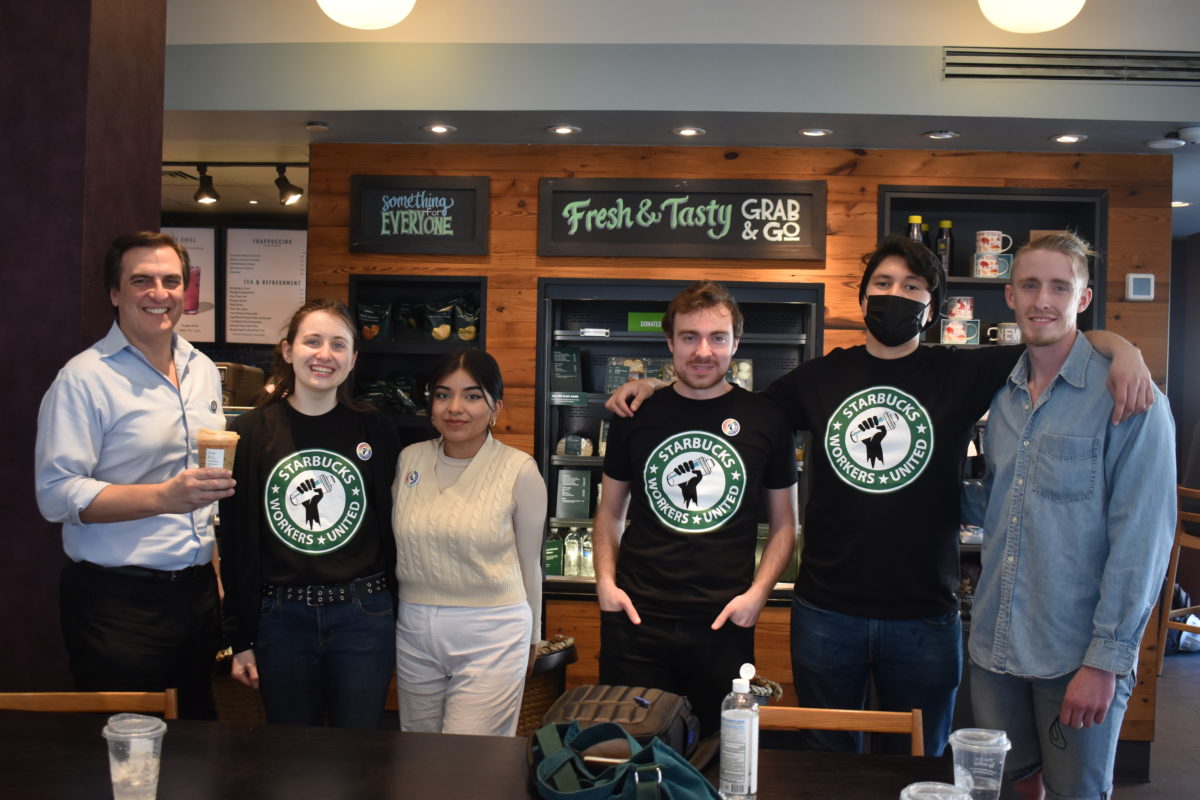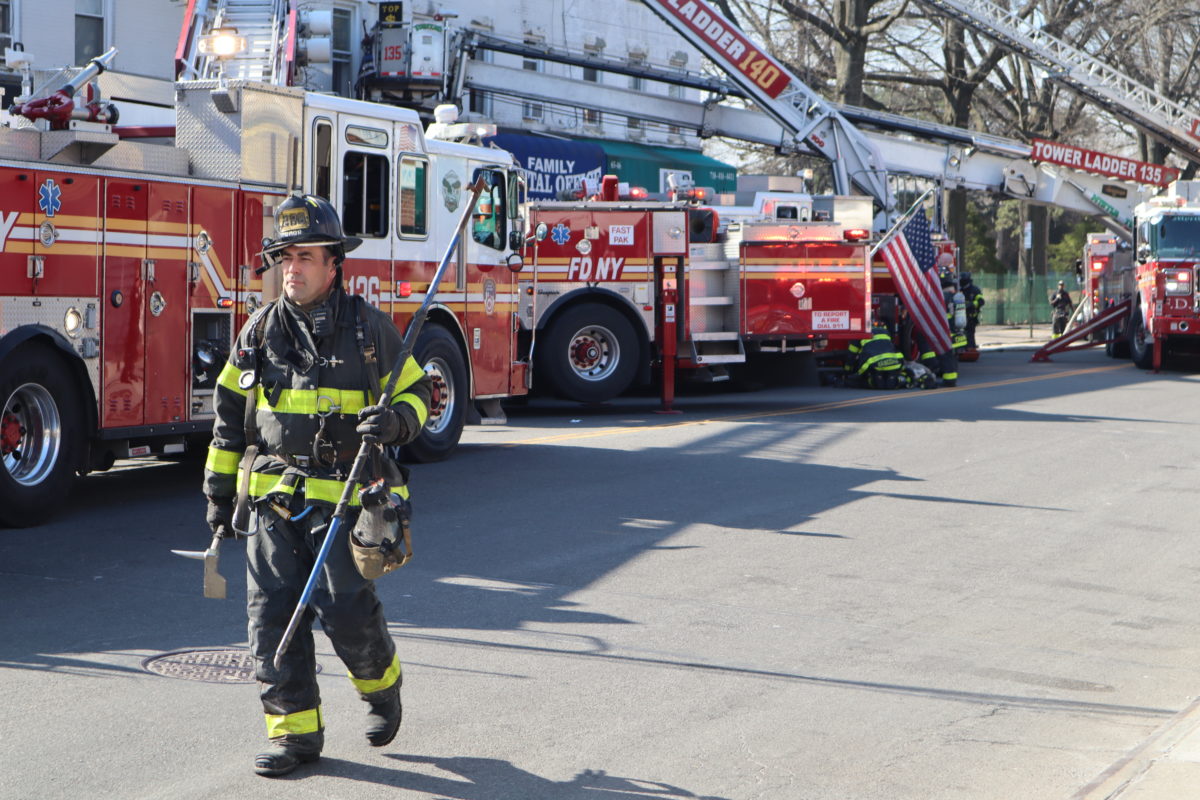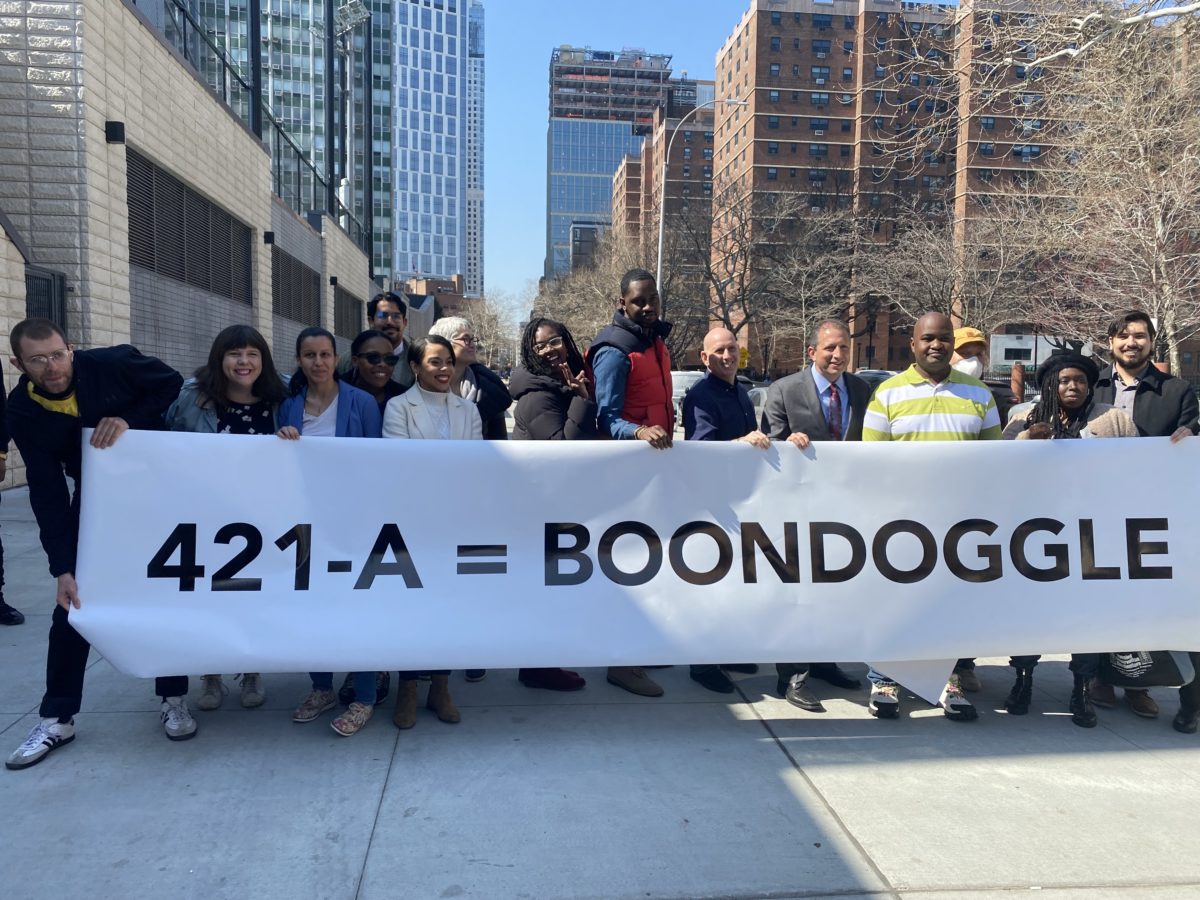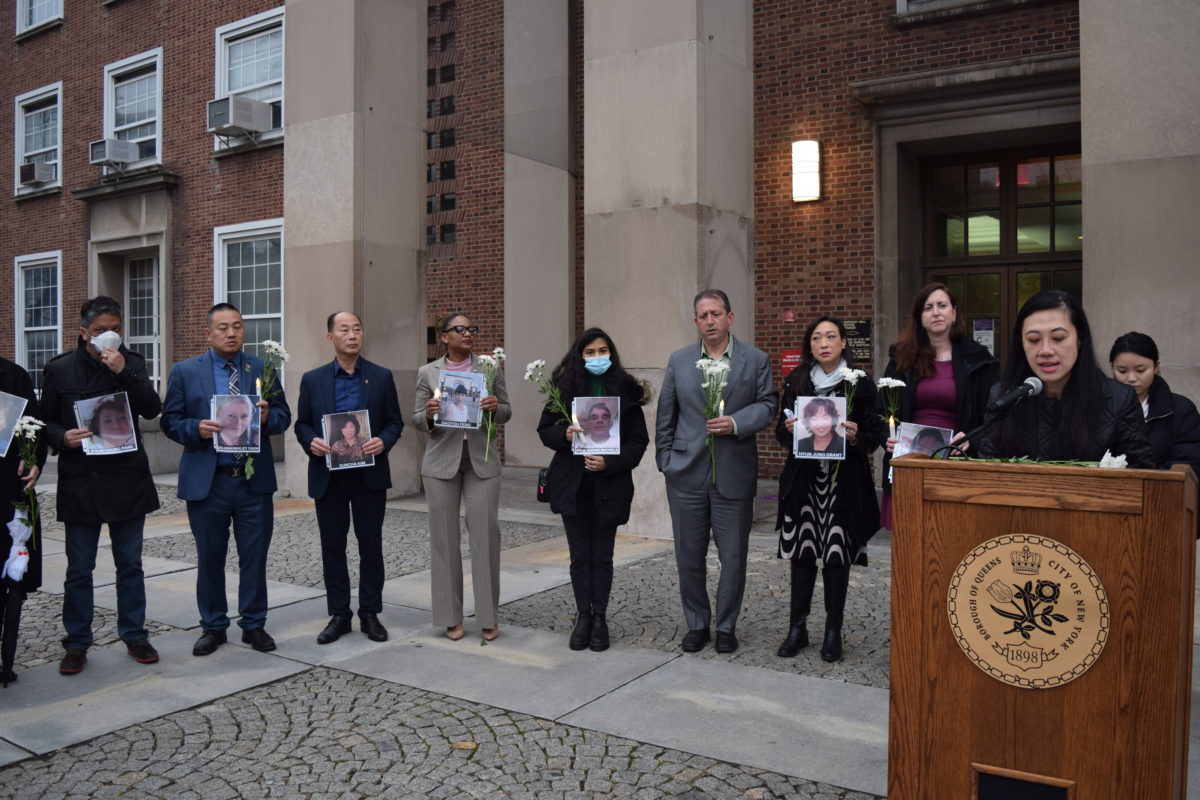Last year, eight victims, including six Asian women, were killed when suspected gunman Robert Aaron Long opened fire in a shooting spree targeting three spas in the Atlanta area.
One year later, elected officials in Queens held a candlelight vigil in their memory. The event was co-sponsored by New York City Councilwoman Sandra Ung, Councilwoman Linda Lee, Councilwoman Julie Won and Queens Borough President Donovan Richards.
Participants held up candles, white flowers and photos of the victims—Xiaojie Tan, 49, Daoyou Feng, 44, Hyun Jung Grant, 51, Suncha Kim, 69, Soon Chung Park, 74, Yong Ae Yue, 63, Delaina Ashley Yaun, 33 and Paul Andre Michels, 54—as speakers addressed the ever-present violence against Asian individuals in New York City.
“He deliberately sought out these businesses because they were owned by Asian women. Make no mistake, this was a hate crime,” Ung said.
“Just this week, an elderly woman was punched 125 times simply because she was Asian,” Ung continued. “Every week, we hear of new accounts of Asian women being attacked, including the recent deaths of Christina Yuna Lee, Michelle Go, and GuiYing Ma.”
Ung expressed how she fears for her safety as an Asian woman walking in the streets of New York City and taking public transportation. She also said AAPI children must be given a sense of dignity and seniors a sense of security.
“No one should fear for their life simply because of the color of their skin, their religion or who they love,” she said.“So many New Yorkers face intolerance and bigotry, and because of that, we won’t stop fighting to make New York a welcoming place for everyone.”
Lee, who became the first Korean-American elected to the New York City Council, said that a multi-prong approach with more culturally competent services is necessary to combat Asian hate.
“We need to make sure that there is teaching of acceptance in schools, and that Asian Americans are not seen as outsiders or others. We also need to continue to work with our public safety police officers and community liaisons so we can advocate and work together,” Lee said. “We need to make sure that we are actually increasing services and resources into the city as well, so people who are homeless have places to go, that the mentally ill are getting services that they need, and that our community groups have enough funding to be able to hire staff that speak in-language.”

Queens Borough President Donovan Richards addressd the crowd, saying: “an attack on us is an attack on all of us.”
During the vigil, Lee also shared that she was disappointed that a self defense instructor she recently met has a lengthly waiting list for classes geared specifically towards Asian seniors.
“They’re targeting women and seniors because we are more vulnerable,” she said. “We need to do as much upstander and bystander training as possible, and look out for each other and be there as a community because it takes all of us.”
Councilman Shekar Krishnan also spoke at the event, emphasizing that violence and discrimination against the AAPI community is not a new phenomenon.
“Hate against Asian American communities goes back generations where we have been invisibilized as communities—where we aren’t seen, we aren’t heard and many of the stereotypes and prejudices about our communities must be shattered,” Krishnan said.
“This invisibilization has meant that the fears and genuine safety concerns of so many seniors and Asian American women have not been recognized for so long,” he added. “To come out and to solve and eradicate this hate, the one thing that’s required first is to listen to the voices of our Asian American communities.”

NYC Councilwoman Linda Lee holds up an image of one of the victims of the Atlanta spa shootings.
Other elected officials who showed their support at the vigil, include NYC Comptroller Brad Lander, State Senator John Liu and Assemblywoman Nily Rozic.
“There have been nearly 11,000 anti-Asian hate crimes across the country in the year since those beautiful souls in Atlanta were lost,” Lander said. “We cannot tolerate that in our city and we must find ways to work together to make it safe. Asian New Yorkers, all New Yorkers, deserve to be able to walk around their city without feeling like they might be targeted for violence just because of who they are.”
Many of the evening’s speakers cited the statement made by BP Richards in regard to Queens. He said, “an attack on us is an attack on all of us,” symbolizing the diversity and sense of unity that is present in the borough.
“How many times must we stand here? We’ve been here too many times,” Richards said. “Almost every single day, we hear news of another Asian American being accosted or attacked, targeted for who they are and what they look like. Asian Americans right here in New York, of all places, have felt the sting of racism and violence.”
“I wish these were isolated events, but they are not. Crimes against Asian Americans have skyrocketed nationwide by nearly 350 percent. We must continue to stand in solidarity with them against this pandemic of prejudice,” Richards said. “Pfizer, Moderna, or Johnson & Johnson don’t have a vaccine for this virus… All of us standing here today are the cure.”
 The Astoria location is part of more than 145 stores across the country that have filed to unionize.
The Astoria location is part of more than 145 stores across the country that have filed to unionize.





 The blaze broke out around 10 a.m. inside the three-story commercial building at 65-50 Grand Avenue spreading from Lafyes Jewelry store.
The blaze broke out around 10 a.m. inside the three-story commercial building at 65-50 Grand Avenue spreading from Lafyes Jewelry store.
 The comptrollers report found that this year the city will give up $1.77 billion in 421-a tax breaks while the city comparatively spends 1.1 billion on the city’s Department of Housing Preservation and Development.
The comptrollers report found that this year the city will give up $1.77 billion in 421-a tax breaks while the city comparatively spends 1.1 billion on the city’s Department of Housing Preservation and Development.




